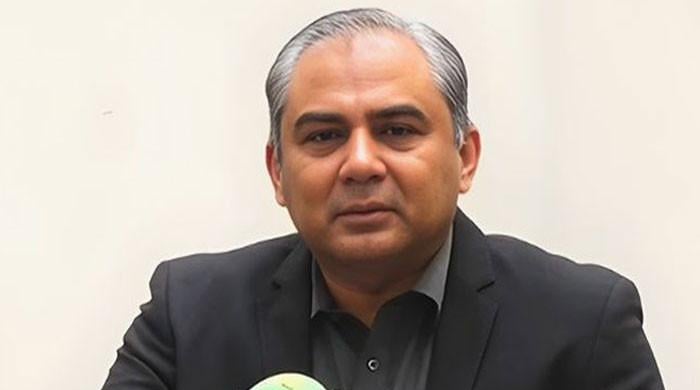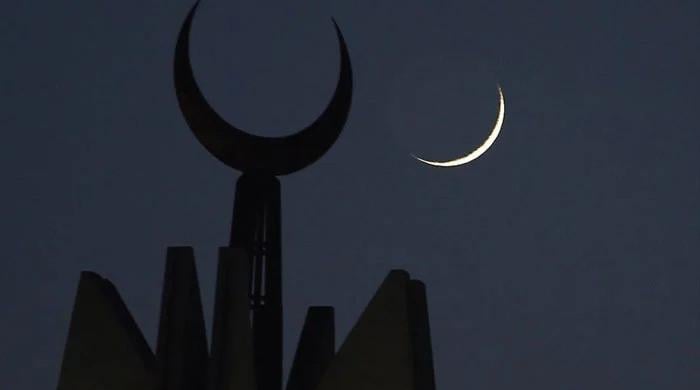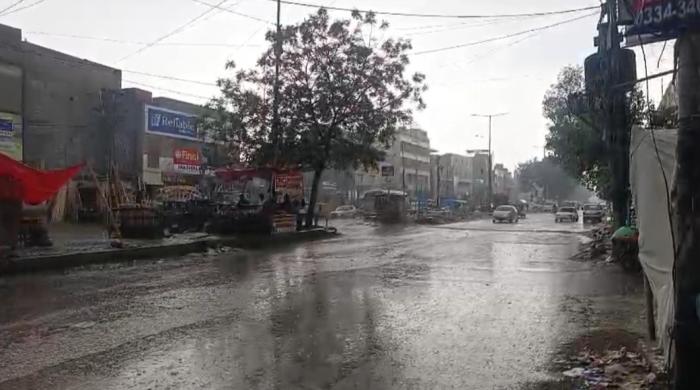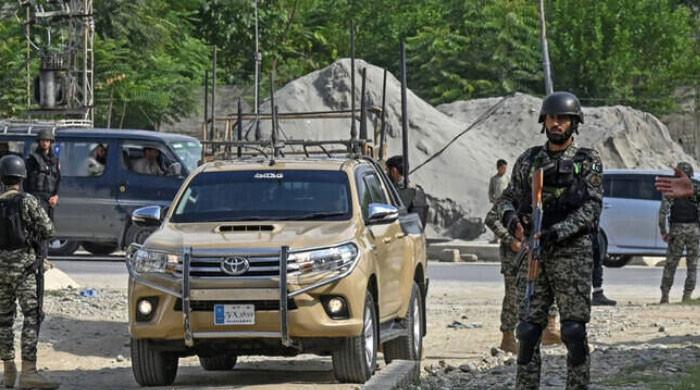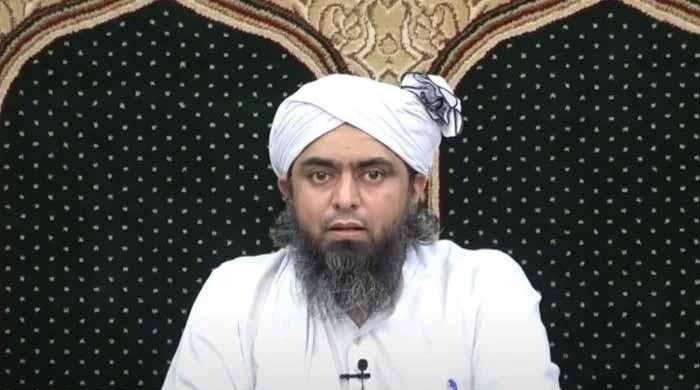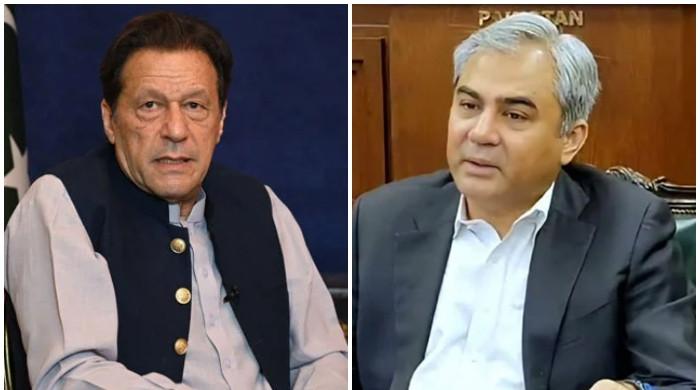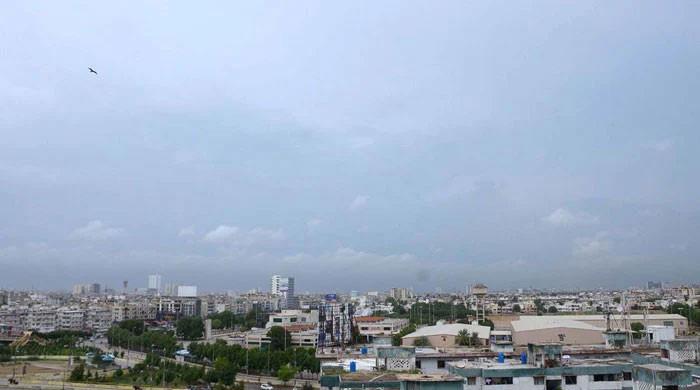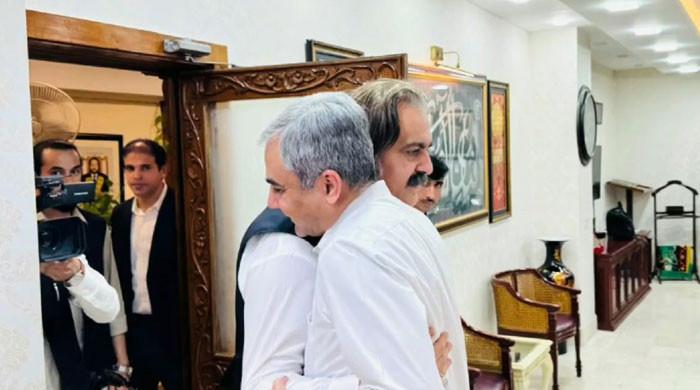LG polls to enable Bengalis, Rohingyas and Afghans in Karachi to show political strength
Smaller groups in the city find no chance of having representation in national and provincial legislatures
December 06, 2022
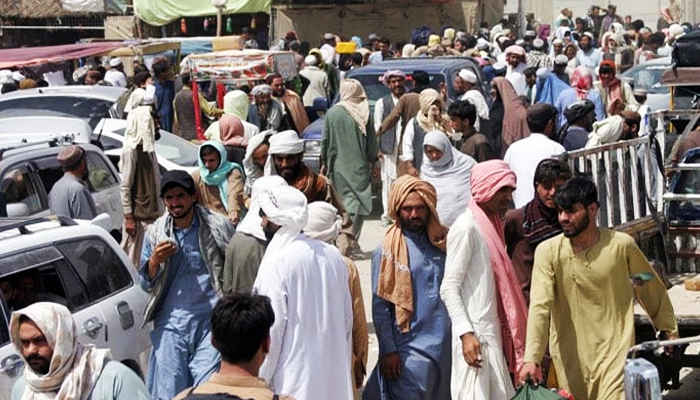
Given the multiethnic city that Karachi is, the local government elections are the best avenue for various ethnicities living here to express their power in terms of electoral strength. As the constituencies for the National and provincial assemblies are too large, smaller ethnic groups of the city like Bengalis, Rohingyas and Afghans often find no chance of having representation in the national and provincial legislatures.
But with smaller constituencies of the local government setup, even ethnic groups in a minority get the chance to have their representatives elected. Therefore, instead of supporting other parties that they do in the general elections, this time, these groups are very much in the electoral fray.
As The News surveyed the Bengali, Rohingya and Afghan communities living in the city to get an idea about their electoral preferences, it found that these ethnic groups had not only formed local alliances with mainstream political parties, including the Pakistan Peoples Party (PPP), Pakistan Muslim League-Nawaz (PML-N), Jamiat Ulema-e-Islam-Fazl (JUI-F), Jamaat-e-Islami (JI) and Pakistan Tehreek Insaf (PTI), in some union committees (UCs), but also in other UCs, they had formed their own independent panels in which they had included some candidates from other ethnicities such as Pashtuns, Muhajirs, Kutchis, Memons, Sindhis and Balochs.
At present, there are three major political parties representing the Bengali and Rohingya committees in the city. They include two factions of the Pakistan Muslim Alliance (PMA) — PMA-Dewan led by Bachoo Abdul Qadir Dewan and PMA-Khwaja led by Khwaja Salman — and Pakistan Muslim League Sher-e-Bangal (PML-SB).
Meanwhile, the Afghan community in the city does not have any specific political group representing them. Still, dozens of candidates of Afghan origin in various areas of the city are contesting the LG polls from the platform of different parties, including the PPP and JI.
PMA-Khwaja
Salman, the chairman of the Khwaja faction of the PMA, is an elder of the Bengali community in Karachi and the son of Khwaja Khairuddin, a staunch Muslim Leaguer who served as the mayor of Dhaka in the 1960s.
Speaking to The News, he said the Bengali community had been residing in Karachi since Partition. He said the All India Muslim League, which created Pakistan under the leadership of the Quaid-e-Azam, was founded in Bengal which was once East Pakistan and now Bangladesh.
He said that due to the fact that the Muslim League was founded in Bengal, the Bengalis were the real Pakistanis, not somebody alien to the country. He explained that Bengali community members had been contesting elections for the last many decades and in the 2015 local government elections, a man of Bengali origin was elected as a town chairman in Hyderabad.
Salman said the PMA faction led by him had decided to forge an electoral alliance with the PML-N. In around 45 different neighbourhoods of Karachi, including Korangi, Orangi, Bin Qasim, North Nazimabad, Moosa Colony, Machhar Colony, 100 Quarters, Ibrahim Hyderi and Zia Colony, the PMA-Khwaja group with the PML-N had fielded around 35 contestants for the chairmanship of UCs and the number of their candidates for the post of councillors was more than 110.
“The PMA has not formed separate panels and all of its candidates are contesting the LG polls in electoral alliances with other parties, including the MQM-P, JI, and the PTI. However, a majority of the PMA workers and leaders would contest the LG polls on the PML-N’s electoral sign — tiger.”
He said the problem of non-issuance of computerised national identity cards (CNIC) to Bengalis had been resolved to a great extent and at present, around 70 per cent of the local Bengalis in Karachi were CNIC holders.
Salman, however, added that the Bengali community had various other issues that needed resolution because in the vicinities where they lived, there were often no basic facilities, including schools, health care units and clean drinking water.
Commenting on the winning prospects of PMA workers contesting the polls, he asserted that many PMA workers who were constesting for the UC chairmanship, including Sardar Moeen in Machhar Colony, Maulana Sagheer in Malir and Hafiz Saeed in Orangi 12, would easily win.
“After 1971, Bengalis stayed in Pakistan because they were loyal to the country. They should not be discriminated on ethnic grounds. The Bengali community has the right to the civic facilities that the other communities enjoy. They should not be treated as second-class citizens,” Salman maintained.
PMA-Dewan
The other PMA faction, PMA-Dewan, also represents the Bengali community in Karachi and other areas of Sindh and Punjab. This faction believes that the problems being faced by the Bengali community can be resolved only if the local Bengalis affiliate themselves with a party in power. However, in contrast to the PMA-Khwaja that has mostly formed alliances with the PML-N, the Dewan faction is politically inclined towards the PPP, believing that the party could resolve the issues of the community as it was in power in the province.
Due to this, over a dozen PMA-Dewan workers are contesting the LG elections in Karachi and Hyderabad from the platform of the PPP.
PML Sher-e-Bengal
The third major party of the Bengali community in the city is the Pakistan Muslim League Sher-e-Bangal (PML-SB). Kazi Nasir Ahmed Nizami, who is popularly known as Munna Bhai, was recently appointed as the acting president of the PML-SB after the party’s president Dr Alauddin resigned from the position citing his illness.
Describing the history of the party, Nizami said the PML-SB was founded by Abul Kasem Fazlul Huq known as Sher-e-Bengal who presented the Pakistan Resolution in Lahore on March 23, 1940.
He added that the PML-SB was one of the oldest political parties in Pakistan and it represented every group, including the minorities of the country, but often laymen associated it with the Bengali community only.
Nizami said the PML-SB has fielded two panels in the UC-5 and UC-6 of Keamari District that will be contesting the polls on the electoral symbol of the party — rickshaw. He added that the party had also inducted candidates from other ethnic groups into these panels. For instance, the candidate for chairman in the UC-5 is Moeez Khan belonging to the Pashtun community while the contender for the post of vice chairman is Muzzafar Mian who is a Bengali.
Likewise, the party has fielded a local Bengali, Muhammad Ilyas, for the chairmanship in the UC-6 whereas a Pashtun, Afzal Khan, is its candidate for the post of vice chairman.
The party has also entered into alliances with other parties in various localities of Karachi. Its worker Maulana Asghar Ali Noori is contesting for the post of vice chairman in the UC-11 of Bin Qasim Town where it has formed an electoral alliance with the JUI-F. Another PML-SB worker Hafiz Muhammad Ismail is contesting the post of general councillor in the UC-9 of Bin Qasim Town.
In the UC-7 of Korangi Bilal Colony, Maulana Usman Farooqi of the PML-SB is contesting for the seat of chairman.
Discussing the plight of the Bengali and Rohingya communities, Nizami said that some political parties had been trying to deprive them of fundamental human rights. He said the Bengalis living in the country were more Pakistanis than other ethnic groups. “The Bengalis were the pioneers of Pakistan. They presented the Resolution of Pakistan commonly known as Qarardad-e-Lahore. The PML-SB is registered in Pakistan. It represents every sect and ethnic group of Pakistan. The struggle against discrimination on the basis of ethnicity would be continued.”
Local Afghans
A large number of Afghans living in Karachi speak Pashto and deny their Afghan origin. They claim to be Pakistani. However, many of the local Pakhtun community in the city do not consider them locals and call them Afghans and by other names such as Kabuli and Mangwali.
Munir Ahmed Shah, a senior journalist who has extensively covered the Afghan community and migrants in Karachi, told The News that the second and third generations of those Afghans who had migrated to Karachi in the late 1970s and early 1980s now considered themselves Pakistanis.
“They have all the legal documents of Pakistani citizenship. However, they are still connected with their ancestral homeland,” he said. The journalist pointed out that a number of candidates of Afghan origin were contesting the local government elections in several UCs of District Keamari where the community was known as Mangwali or Mangwalian, a Pashto-variant of the word.
He explained the local community had named the Afghan community 'Mangwali' because many of them had migrated from a village named Mangwal located in Khas Kunar District of Kunar province in Afghanistan. “The number of Mangwali contestants would be more than 15 in Keamari only,” said Shah.
He added that in several areas of the city including Metroville, MPR Colony, Sohrab Goth and Ittihad Town, a number of Afghans were taking part in the local bodies elections from the platform of mainstream political parties such as the PPP, PTI and JI.
About the ‘Mangwali’ nomenclature, journalist Wakil ur Rehman is of the view that very few families had migrated from the Mangwal village of Afghanistan to Pakistan and settled in Keamari back then, but the locals of the area somehow ended up naming all the Afghan migrants as Mangwalis.
Rehman said the people of Afghan origin in Karachi were known as Kabuli in the Pakhtun-dominant areas of the city such as Metroville and MPR Colony. He pointed out that the chiefs of the JI and PPP’s District West chapters were also of Afghan origin.
Statistics
No official statistics are available regarding the actual number of Bengalis, Rohingyas and Afghans living in the city. However, leaders of the Bengali community claim that around 1.5 million to 2.1 million Bengalis reside in Karachi.
Salman estimated that the number of Bengalis in Karachi would be more than 1.5 million while Nizami said their number was more than 2.2 million. According to the leaders of PMA factions and PML-SB, the Bengali community has several settlements in various districts of Sindh, including Sukkur, Badin, Hyderabad and Karachi, and a small community of Bengalis also resides along the coast of Balochistan. Regarding the number of local Afghans in the city, some journalists and community members believe that some 300,000 to 500,000 people of Afghan origin live in Karachi.
Bengali and Rohingyas
Although Bengalis have been living in Karachi since the formation of Pakistan, a significant number of them along with Rohingyas from Burma arrived in the city in 1980s. According to journalist Zia Ur Rehman, Bengalis and Rohingyas live side by side in dozens of shanty towns of Karachi. He said that both the communities were very different from each other linguistically as well as culturally, but the Rohingyas in the city generally called themselves Bengalis.
Many Bengalis and Rohingyas migrated to Karachi in the 1980s owing to the liberal policy towards refugees during Gen Ziaul Haq’s military regime and the trend continued intermittently until 1998, the journalist explained.
He added that the Rohingya community largely supported politico-religious parties, including the JI, the JUI-F and Ahle-Sunnat Wal Jamaat. In the 2001 local government elections, several Bengali and Rohingya leaders were elected as nazims and councillors at the union council and town levels in those areas of Karachi where the communities were in a majority. They won independently as well as on the tickets of various political parties.
Political show-off
In 2002, the Rohingya and Bengali communities contested the general elections from the platform of their own political parties, especially the PMA and the PML-SB. The PMA had failed to win any seat but managed to bag a significant number of votes from the Bengalis and Rohingya living in Korangi and Bin Qasim.
The PMA candidates had bagged around 5,000 votes each from NA-254 Korangi and PS-129 Bin Qasim constituencies only from the Rohingya and Bengali neighbourhoods. However, after the MQM had formed a special committee for the Bengali and Rohingya communities called the Pakistan Bengalis Action Committee (PBAC) in 2005, the PMA abandoned its activities.
The PBAC, led by Shaikh Feroz, a former town Nazim of Orangi, was once active in all the Rohingya neighbourhoods of the city. In January 2012, Bengalis and Rohingyas in thousands had gathered at the Mazar-e-Quaid at a public meeting of the newly launched All Pakistan Muslim League by Pervez Musharraf.
Originally published in The News




